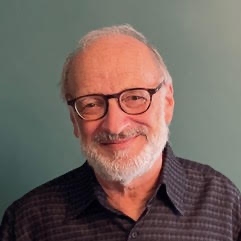While we all know suffering when we see it, there are countless ways of understanding its causes. Some of these are shared and formal, such as those found in medicine, psychology and Western religious traditions, and many are private and idiosyncratic to every one of us. How we understand suffering critically shapes the way we respond to it. In this program, we will explore a range of accounts of suffering, including how our understanding is shaped by personal history, culture, science, and personality, with particular attention to the underlying assumptions about suffering found in clinical psychology and psychotherapy. We will then explore the Buddha’s formulation for the origin and cessation of suffering. Every ‘great tradition’ has some cornerstone truth, and the First Noble Truth of Suffering is one such foundational axiom of Buddhist thought and practice: If we are born, we are inevitably subject to suffering, and yet it is the experience everyone is most motivated to escape. In this, suffering becomes a central and enduring problem for all of us. Through readings, conversation, lecture, and practice, we will explore these various formulations, in order to open up broader avenues for understanding – and responding to – suffering. While this program has relevance for mental health practitioners and other caregivers, enrollment is open to all.
Barre Center for Buddhist Studies
Barre Center for Buddhist Studies

- This event has passed.
Suffering: How do we understand it, and why does it matter?
Residential Program
Dates: Jan 26, 2018 - Jan 28, 2018
Days: Friday - Sunday
Number of Nights: 2 nights
Instructor(s): Paul R. Fulton
Course Navigation
-
About the Instructor(s):
-
Paul R. Fulton is a clinical psychologist, founding member and former president of the Institute for Meditation and Psychotherapy, and a former board member of the Barre Center for Buddhist Studies. Dr. Fulton is a Lecturer, Part-Time, in Psychology, Department of Psychiatry at Harvard Medical School at Cambridge Health Alliance and is course director for the Institute’s year-long Certificate Program in Mindfulness & Psychotherapy. He has written and taught internationally on the integration of mindfulness and psychotherapy. Paul has been a student of psychology and meditation for over 50 years. He holds a doctorate in comparative developmental psychology from Harvard’s Laboratory for Human Development, is a contributing author to, and co-editor of, Mindfulness & Psychotherapy (Guilford Press), and many articles and book chapters on related topics, including essays for BCBS’s Insight Journal.



